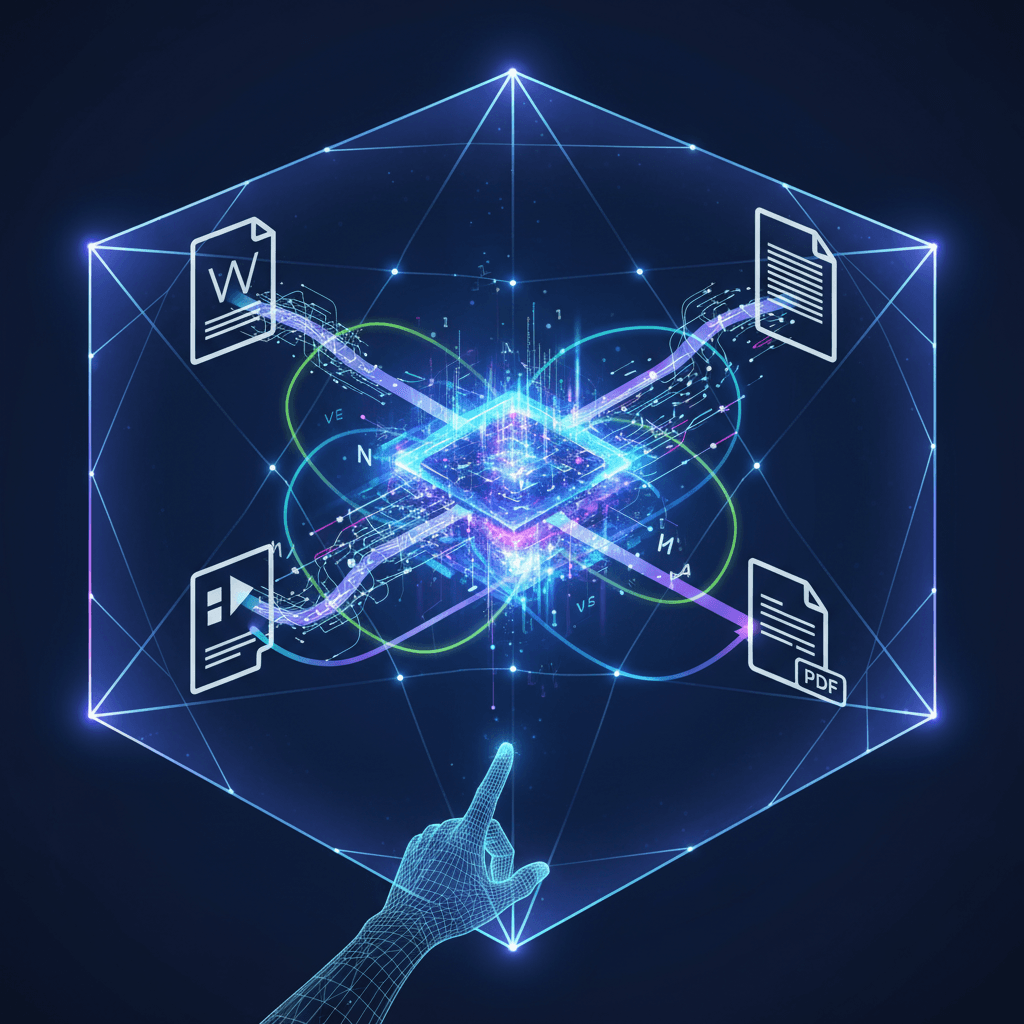Claude's Agentic AI Now Builds and Edits Key Business Documents
Claude becomes an agentic work colleague, directly creating and editing business documents to automate complex tasks.
September 9, 2025

Anthropic has significantly advanced the capabilities of its AI assistant, Claude, by introducing a feature that allows users to directly create and edit a range of common business documents within the chat interface. The update enables interaction with Microsoft Word, Excel, and PowerPoint files, as well as PDFs, transforming the AI from a conversational advisor into an active work collaborator. This move places Anthropic in more direct competition with other major AI players and signals a broader industry shift towards more autonomous, task-oriented AI systems, often referred to as "agentic AI." The new functionality is being rolled out as an experimental preview, initially available to subscribers of Claude's Max, Team, and Enterprise plans, with access for Pro users expected to follow in the coming weeks.
The core of this new feature is a sophisticated technical backend that provides Claude with access to a private, sandboxed computer environment.[1][2][3] Within this secure space, the AI can write and execute code, primarily in languages like Python and Node.js, to perform the complex operations necessary to build and modify files.[1] This allows users to move beyond simple text generation and engage in multi-step, cross-format tasks. For example, a user can upload a data-heavy PDF report and ask Claude to extract the key information and present it in a ready-to-use PowerPoint presentation.[4][5] Similarly, raw numerical data in a CSV file can be transformed into a fully functional Excel spreadsheet, complete with data cleaning, statistical analysis, charts, and even written insights explaining the findings.[6][5] The system can also take unstructured meeting notes and format them into a polished Word document.[4] Once a file has been created or edited, it can be downloaded directly or saved to Google Drive, streamlining the workflow from request to final product.[4]
This development intensifies the competitive landscape among leading AI providers, each vying to become the central hub for workplace productivity. Claude's new capabilities are comparable to OpenAI's "Advanced Data Analysis" feature in ChatGPT (formerly known as Code Interpreter), which also provides a sandboxed environment for running code to analyze data and create files.[1] While ChatGPT has been noted for its robust data analysis and visualization capabilities, some early user experiences suggest Claude's approach to creating formatted documents like PowerPoints may be more direct.[4][7] Meanwhile, Google is deeply embedding its Gemini AI into the Workspace ecosystem, allowing users to generate slides directly within Google Slides by referencing documents in their Drive.[8][9] This integration offers a seamless experience for users already invested in Google's suite of tools. Anthropic's strategy appears to position Claude as a versatile, platform-agnostic collaborator capable of working with the file formats that dominate the corporate world, regardless of the underlying software suite.
The introduction of these "agentic" capabilities, where the AI can take multi-step actions to achieve a goal, represents a significant evolution in the future of work.[10][11] Analysts predict that such systems will automate a substantial portion of office tasks in the coming years, shifting the focus of human workers from execution to strategy and oversight.[12] Instead of manually cleaning data or formatting slides, professionals can delegate these technical implementations to the AI, allowing them to concentrate on higher-level decision-making.[2] This promises substantial productivity gains by shrinking the gap between an idea and its execution.[2] For financial analysts, this could mean instantly creating complex financial models from raw data; for marketers, it could involve generating detailed reports with charts and written analysis in minutes.[6][13] However, the technology is still in its early stages, and there are limitations. Users have noted file size constraints, with Claude currently supporting uploads and downloads up to 30MB per file, and have found that achieving the desired output often requires clear and precise prompting.[6][14][7]
As these AI tools become more powerful and autonomous, security and data privacy are paramount concerns. Anthropic has acknowledged that because the file creation feature gives Claude access to the internet to download necessary software packages, it "may put your data at risk."[1][2][15] The company explicitly cautions users to monitor the AI's actions closely when using the feature and to be wary of uploading sensitive information.[2] The sandboxed environment is designed to be private and secure, but the potential for the AI to be tricked by malicious instructions from external files or websites into leaking data remains a risk that users must mitigate through vigilance.[13] Anthropic states it has implemented several safeguards, including giving users full control to enable or disable the feature and providing user-friendly summaries of the AI's actions.[13] This emphasis on security aligns with the broader challenge facing the industry: how to build increasingly capable and autonomous AI agents while ensuring they remain safe, reliable, and aligned with user intentions.
In conclusion, Anthropic's decision to empower Claude with the ability to create and edit essential business documents is a pivotal step forward for the platform and the AI industry at large. It moves beyond the paradigm of a simple chatbot to offer a glimpse into a future where AI agents act as true digital colleagues, handling complex, multi-step tasks that form the bedrock of modern knowledge work. While challenges related to security, user experience, and the responsible deployment of autonomous technology remain, this advancement firmly establishes file manipulation as a key battleground in the race for AI supremacy. The ultimate impact will depend on how effectively users can harness these new capabilities to augment their own skills and how companies like Anthropic continue to innovate while prioritizing safety and trust.
Sources
[2]
[3]
[5]
[8]
[9]
[10]
[12]
[13]
[14]
[15]